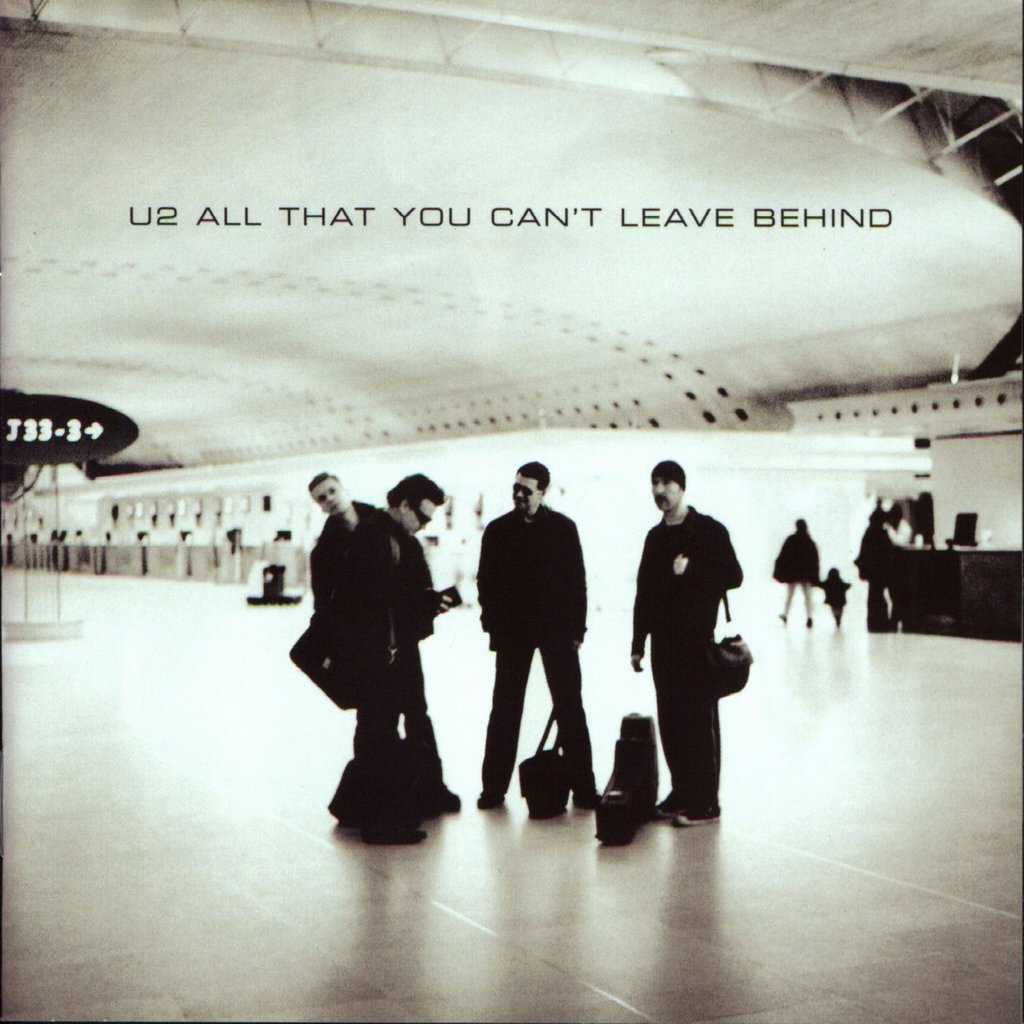
All That You Can't Leave Behind (2000)

1. Beautiful Day 2. Stuck in a Moment That You Can't Get Out Of 3. Elevation 4. Walk On 5. Kite 6. In a Little While 7. Wild Honey 8. Peace on Earth 9. When I Look at the World 10.New York 11.Grace
After a decade defined by reinvention, distortion pedals, ironic personas, and techno-infused experimentation, U2 began the 21st century with a gentle course correction. All That You Can’t Leave Behind wasn’t a retreat so much as a rebalancing. If Pop had pushed the band’s sonic palette to its absolute limit—and then some—this album saw them step back, refocus, and realign. The result? A record that, while hardly groundbreaking, reminded everyone why U2 mattered in the first place.
To say this is a “return to form” might be misleading. They weren’t exactly going back to Boy’s jittery urgency, nor were they resurrecting the anthemic righteousness of The Joshua Tree. Instead, this is the sound of four men nearing forty, confident enough in their craft to dial things down without dulling the edges. It’s mature, melodic, and—dare we say—comfortable. But in the best possible way.
The production, handled once again by Brian Eno and Daniel Lanois, is pristine. Gone are the glitchy overlays and sonic overreach of the last few efforts. In their place: warmth, space, and clarity. Beautiful Day opens the set with one of the most euphoric choruses the band has ever committed to tape, and it remains the record’s defining moment. Elevation and Walk On follow in rapid succession—straightforward, radio-ready rockers that reinforce the idea that simplicity, when handled by experts, can be a virtue.
But the album’s strength lies not just in its chart-friendly singles. Stuck in a Moment You Can’t Get Out Of is a gently soulful tribute wrapped in gospel hues, while In a Little While charms with its late-night intimacy and understated groove. Kite, perhaps the album’s most personal offering, wrestles with change and loss in a way that feels both grounded and universal. It’s these middle tracks that reveal the heart of the record—earnest, emotionally rich, and devoid of pretense.
That said, the album isn’t without its stumbles. The second half, while still polished and tuneful, doesn’t quite carry the same weight. Peace on Earth is haunting in its intent, but its impact is lessened by lyrical specificity—references that may not register with every listener. New York veers into awkward territory, its spoken-word verses and jarring dynamics feeling slightly out of sync with the rest of the set.
Thankfully, the record closes on a high note. Grace is a subdued and beautiful finale, all hushed textures and spiritual reflection. It doesn’t attempt to dazzle—it simply lingers.
The public, predictably, embraced the record. Longtime fans welcomed the change of tone, and a new generation discovered a version of U2 unburdened by irony and experimentation. The band, for their part, traded stadium excess for arena intimacy on the accompanying tour—a shrewd and welcome decision that brought the music closer to the people.All That You Can’t Leave Behind may not be a revolutionary album, but it doesn’t need to be. It is, quite simply, the sound of a great band remembering how to be themselves. And after the labyrinthine detours of the 1990s, that was more than enough.